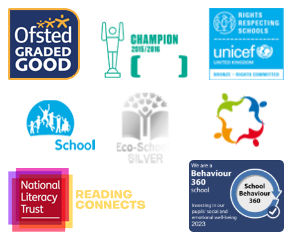School Vision Statement:
Our school is committed to bringing out the best in each other so that every member of the school community can know ‘life in all its fullness’ (John 10:10). Through learning of the teachings of Jesus, we believe that our children can explore and develop their understanding of Core Christian values as markers and guides for their own lives. We aim for the school’s Core Christian values to inform and influence our pupils’ moral compass and allow them to enjoy ‘life in all its fullness’. These values are known as the ‘Sunshine 6’. They are: Forgiveness, Perseverance, Honesty, Compassion, Courage and Respect.
We also uphold Article 29 from the UN Convention of Rights of the Child ‘Education must develop every child’s personality, talents and abilities to the full. It must encourage the child’s respect for human rights, as well as respect for their parents, their own and other cultures and the environment.’
Curriculum Intent:
Our curriculum is intended to equip our learners for the challenges which lie ahead of them in the next stages of their education and in the world beyond. We want to ensure that every child leaves our school with the academic skills needed to succeed and that they demonstrate high quality learning behaviours which will sustain them in their future lives. The curriculum is rooted in our core Christian values and is designed to support children in becoming individuals who are compassionate and able to communicate and collaborate effectively in the community that surrounds them. The moral basis of our curriculum, which challenges our learners with big questions, prepares them to become positive role models and open-minded global citizens who are able to take their place in modern society.
Early Years Foundation Stage Curriculum Intent:
We intend that our Early Years children leave school every day, having learned that the world is full of wonder; that people are kind; that learning new things is fun and that they are important and they are loved. Their curiosity has been sparked by inspiring provocations and the learning environment has fostered this curiosity, leading to fascinated, engaged and therefore successful learners. Their day has been full of joy and they have experienced “life in all its fullness”.
We achieve this by focussing on the principles of the EYFS: we welcome the unique child into an enabling environment and build a positive relationship with them in order to foster their learning and development. We focus on laying the foundations for lifelong learning by explicitly teaching the Characteristics of Effective Learning and ensuring that children have as many opportunities to practice and apply these characteristics throughout their day, before reflecting on them at the end of their day’s learning. We recognise that children do not have an equity of early life experience and we aim to directly address this by supporting the most disadvantaged children, as well as focussing, in our curriculum, on those areas which research shows us have the most efficacy in “closing the gap”; namely language development and reading for pleasure.







